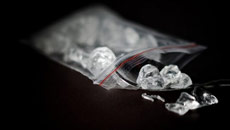If you often feel sleepy during the day, chances are that your bones may also be fragile. Researchers have found that orexin proteins - blamed for spontaneous daytime sleepiness - also play a crucial role in bone formation.
In lab experiments, mice lacking orexins were found to have very thin and fragile bones that break easily because they have fewer cells called osteoblasts - responsible for building bones.
The findings could potentially give rise to new treatments for osteoporosis.
"Osteoporosis is highly prevalent, especially among post-menopausal women. We hope to take advantage of the already available orexin-targeting small molecules to potentially treat osteoporosis," said Yihong Wan, an assistant professor at University of Texas' Southwestern Medical Center in the US.
Orexins seem to play a dual role in the process: they both promote and block bone formation.
On the bones themselves, orexins interact with another protein, orexin receptor 1 (OX1R) that decreases the levels of hunger hormone ghrelin.
This slows down the production of new osteoblasts and, therefore, blocks bone formation locally.
At the same time, orexins interact with orexin receptor 2 (OX2R) in the brain.
In this case, the interaction reduces the circulating levels of leptin, a hormone known to decrease bone mass, and, thereby, promotes bone formation.
"Therefore, osteoporosis prevention and treatment may be achieved by either inhibiting OX1R or activating OX2R," Wan added.
The study appeared in the journal Cell Metabolism.





